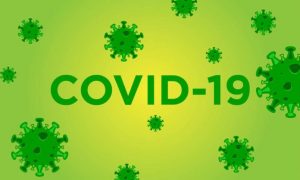
Strata in the Time of COVID-19
COVID-19 and the efforts to protect lives are currently dominating the lives of Australians.
For those living in strata or advising those living in strata, it raises questions as to what steps should be taken in relation to the COVID-19 threat.
The first step is to understand the threat and the advice of professionals and government. In this regard, the website below from the Commonwealth Department of Health sets out information people should be aware of.
https://www.health.gov.au/news/health-alerts/novel-coronavirus-2019-ncov-health-alert
The ACT Government Department of Health has also established the website below.
https://health.act.gov.au/public-health-alert/updated-information-about-covid-19
The above websites should be checked regularly (as they are updated daily) to understand what the Government believes is necessary and recommended.
On 16 March 2020, the ACT Government also declared a public health emergency. While an emergency declaration is in place, the ACT chief health officer has powers to “remove threats to public health”, including isolating or quarantining people.
The Public Health Act includes fines of up to $8,000 for people who breach orders to isolate.
In the ACT, COVID-19 also presents issues for owners corporations from three perspectives.
Firstly, if the Work Health and Safety Act 2011 (ACT) (the Act) applies to your units plan, there are a range of duties that will apply including:
- ensuring the health and safety of workers in the workplace (s 19);
- ensuring that the workplace, the means of entering and exiting the workplace and anything arising from the workplace are without risks to the health and safety of any person (s 20);
- ensuring the fixtures, fittings and plant are without risks to the health and safety of any person (s 21); and
- ensuring that WorkSafe ACT is notified of any particular incidents (s 38).
Chapter 8 of the Kerin Benson Lawyers Guide to ACT Strata Law sets out which owners corporations are subject to the Act. Table 8.02 of the Guide sets out the penalties for non-compliance as well as providing guidance on how to comply with the duties.
Secondly, rules 6 and 7 of the Default Rules provide as follows:
Rule 6 Hazardous Use of Unit
A unit owner must not use the unit, or permit it to be used, so as to cause a hazard to an owner, occupier or user of another unit.
Rule 7 Use of unit – nuisance or annoyance
- A unit owner must not use the unit, or permit it to be used, in a way that causes a nuisance or substantial annoyance to an owner, occupier or user of another unit.
- This rule does not apply to a use of a unit if the executive committee has given an owner, occupier or user of the unit written permission for that use.
- Permission may be given subject to stated conditions.
- Permissions may be withdrawn by special resolution of the owners corporation.
Thirdly, there is the common law concept of nuisance being a substantial, unreasonable and repeated or ongoing interference with the use or enjoyment of a neighbour’s property.
The conduct of owners or occupiers in connection with COVID-19 needs to be viewed with the above three issues in mind.
Otherwise, what steps can an owners corporation take in response to COVID-19?
When an individual needs to self-isolate due to the coronavirus, then the owners corporation is dealing with a vulnerable person and our suggestion is to use compassion but to protect other occupants. As pre-emptive measures the owners corporation should consider:
- holding meetings in an open area such as a common property lawn, to allow social spacing of 1 metre between attendees and setting strict rules including no handshaking;
- requesting occupants who are affected to let their strata manager or building manager know so that precautions can be taken to protect other occupants. This may include temporarily granting that lot owner access to a car space that is closer to their front door or lift, ensuring hand sanitiser is available for all persons using a common lift or a common door if the door is not automatic, requesting the building manager accept deliveries of groceries and to leave them at their front door so that no physical contact is required and the list goes on;
- more frequent cleaning of any shared amenities and regularly stocking up soap and hand towel dispensers; and
- placing notices requesting occupants wash their hands regularly, to allow for social spacing and follow medical guidelines.
Unfortunately, until the new amendments to the Unit Titles (Management) Act 2011 (ACT) take effect on 1 November 2020, owners must be physically present to attend meetings.
Owners corporations should also seriously consider notifying their insurers and asking what, if any, recommendations they have and implementing those in a timely manner.
This article should not be considered as legal advice. If you are affected by COVID-19 in your building or scheme then you need to seek legal advice that is specific to your situation.

By Christopher Kerin, Legal Practitioner Director at Kerin Benson Lawyers
